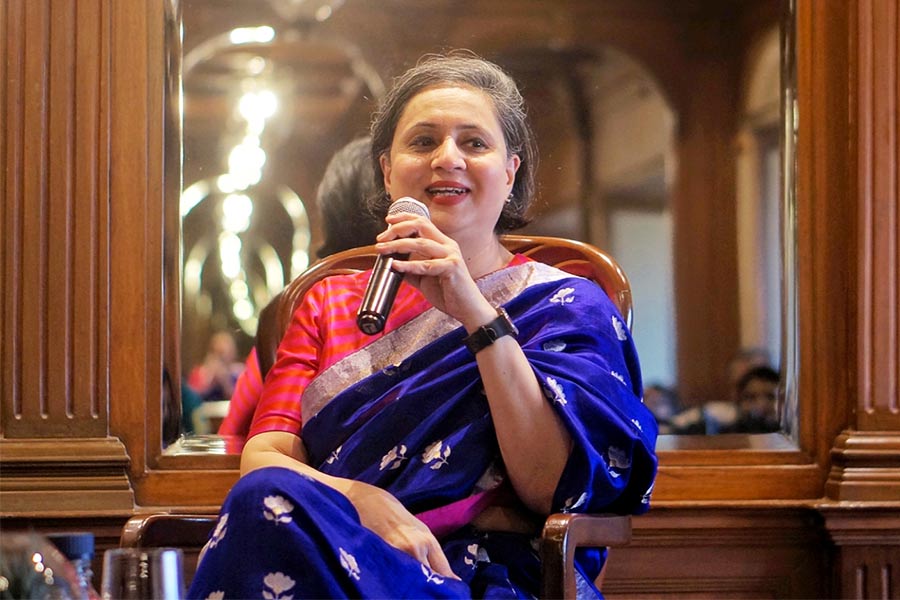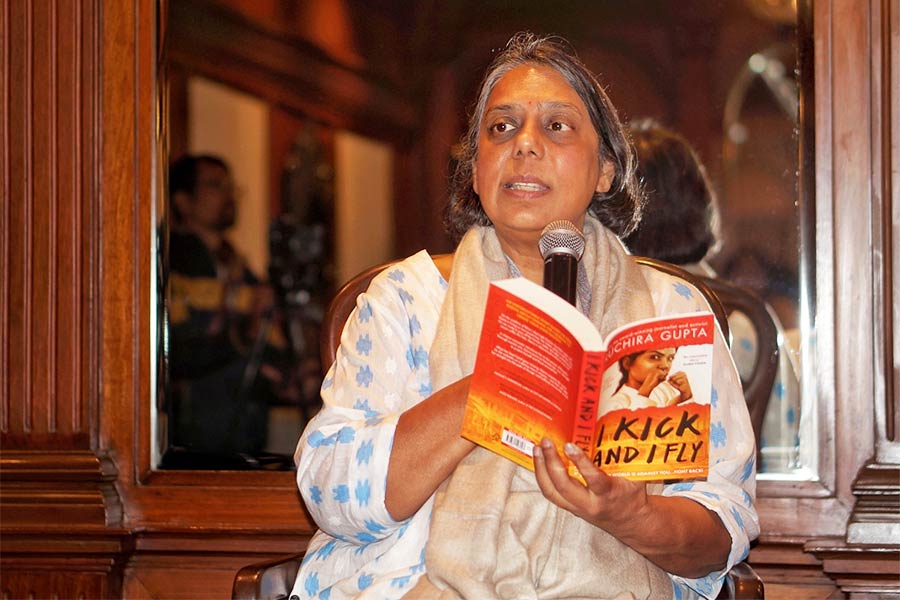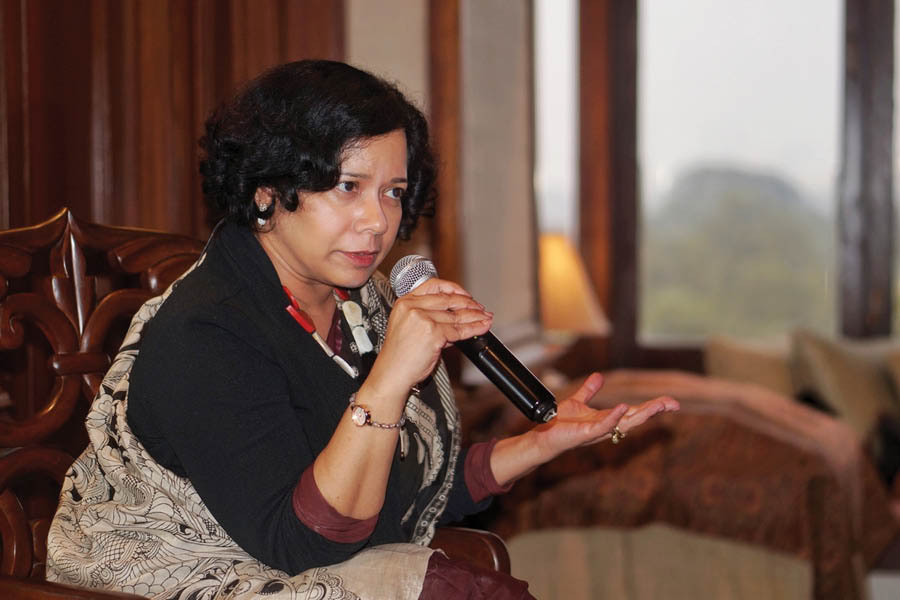“She loved democracy, but she didn’t like it,” said Sagarika Ghose about Indira Gandhi, as she discussed her book, Indira: India’s Most Powerful Prime Minister, at the latest session of An Author’s Afternoon, organised by Prabha Khaitan Foundation at Taj Bengal, in association with Shree Cement Limited, with My Kolkata as the digital partner.
Ghose’s career as a journalist spanned over three decades. A journalist since 1991, she has worked in the capacity of a reporter, editor, columnist and anchor for a series of media organisations. Presently, she is a consulting editor with the Times of India. Adding a fresh feather to her cap, she was nominated by the Trinamool Congress (TMC) to the Rajya Sabha polls for later this year. In conversation with the journalist and author Payal Singh Mohanka, Ghose discussed her books, career, inspirations, and political career.
‘I’m worried about what is happening to Indian democracy’
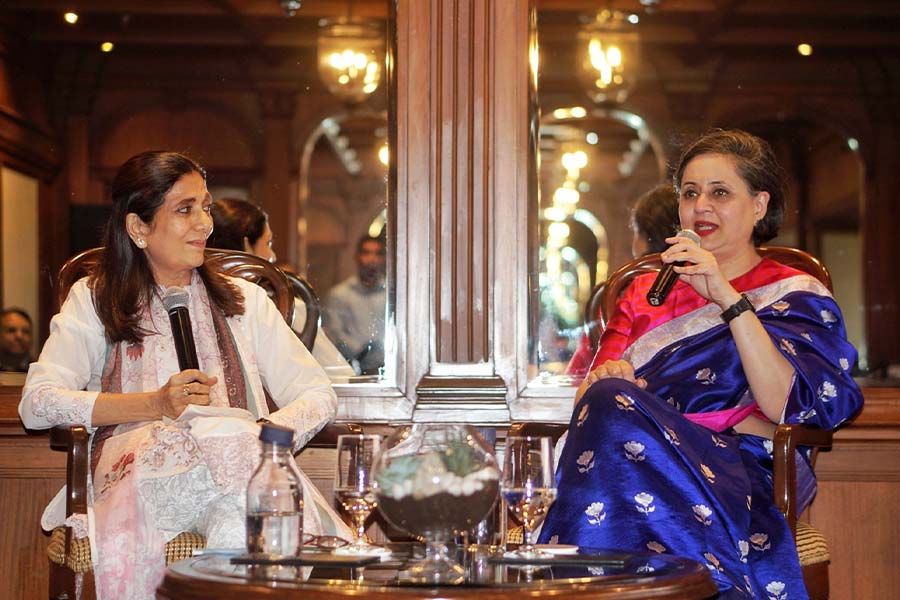
Payal Singh Mohanka (left) in conversation with Ghose
When Ghose started her career as a journalist, she never imagined she would become a politician. Fiercely critical of governments, she never imagined herself having a career in politics. But her decision to be in politics came after witnessing the dire state of governance in the country.
“I have torn politicians and the political system to shreds. I have written biographies tearing politicians apart. So joining politics was not the most logical thing to do. But when this offer (to become a member of the Rajya Sabha) was made to me, I saw it as a tremendous recognition and also a kind of responsibility for my home State (of West Bengal). I'm worried about what's happening to Indian democracy, our media and our civil rights. So, I decided that it was crunch time, since I have been out of the newsroom for three years,” explained Ghose.
What deeply worries Ghose is the extent of executive overreach in India today, where every aspect of an individual’s life is slowly coming to be controlled by the government. “The future is federal” is her analysis and her foray into politics is to reduce government power.
“The government shouldn’t dictate what we eat, write, wear, love, marry, or how we live our lives, or even what we read. Take Uttarakhand, for instance, where a live-in couple must seek permission from a registrar to live together. And if the relationship ends, they have to ask for permission again to end it. Why should a government official decide the fate of a relationship? This system creates vast opportunities for corruption. I oppose executive overreach and aim to reduce government power,” said Ghose.
‘Women have to cultivate a certain strategic madness’
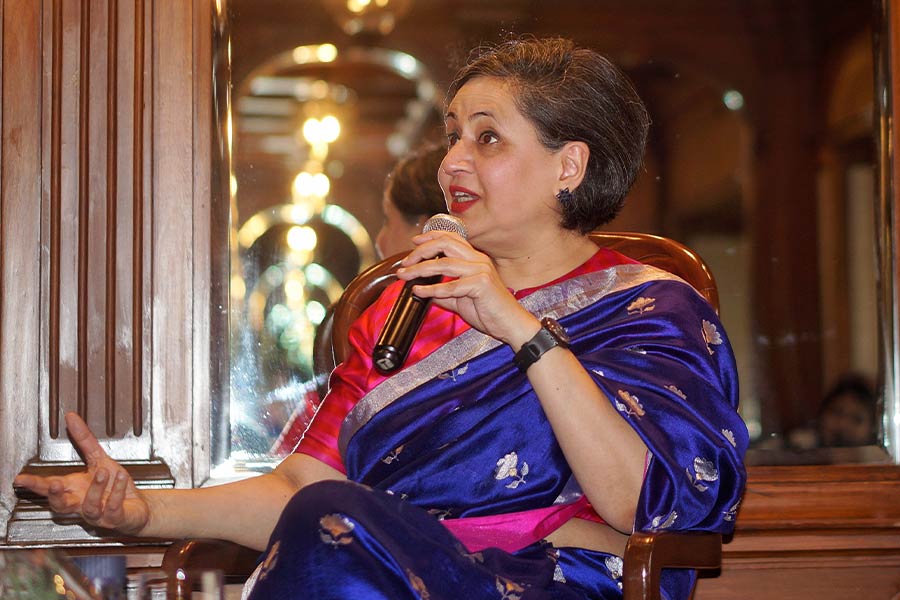
Ghose saw the opportunity to join politics as a recognition as well as a responsibility
Throughout her life, Ghose had been inspired by her two aunts, Arundhati Ghose and Ruma Pal. While Arundhati Ghose was a diplomat, Rupa Pal was a judge of the Supreme Court. Being brought up around powerful women instilled in Ghose the belief that women could do whatever they wanted. This helped her to push against sexist practices in the workplace.
“When I started working fresh out of Oxford, for the first few days I was just asked to flip through magazines while my male counterparts were asked to cover political rallies. I then had to tell my seniors that I also wanted to be a field reporter. In 1991, journalism was a male-dominated field, but with the advent of television, more women journalists have started coming up. But I would still say there’s a glass ceiling. Additionally, there’s what I call the glass club — the after-hours gatherings where men create exclusivity by lifting their glasses, creating a space that women can’t enter. So, while women can climb the ranks, they eventually hit a point where they’re unable to progress further,” described Ghose..
This is why Ghose believes that women need to cultivate “a certain strategic madness”, which can allow them to get ahead in their careers. “If you want to succeed, you have to embrace a bit of insanity, be a little off, a little cracked. When people see you as a bit eccentric, they tend to leave you alone and let you do your thing. I’d always push for opportunities and ask for tasks to do. I thrived on it. I enjoyed being fully immersed in my work,” added Ghose.
Ghose credited two of her former editors, Vinod Mehta and Dileep Padgaonkar, for supporting and inspiring her. Apart from that, Ghose said that her husband and noted journalist, Rajdeep Sardesai, had not only been supportive but “unendingly proud”. “His pride in me reinforces me a great deal,” she beamed.
On Ghose’s biography of Indira Gandhi
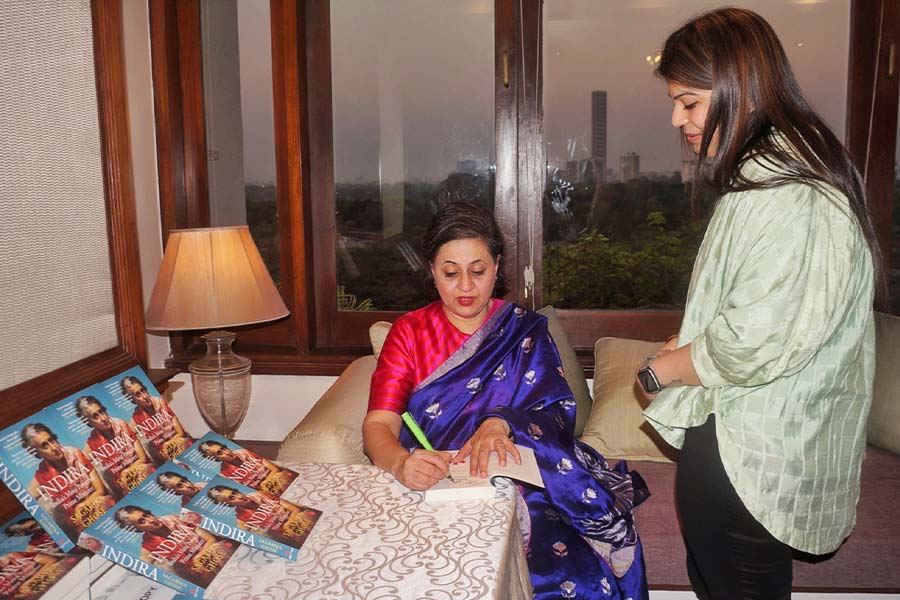
Ghose signing copies of her book, ‘Indira: India’s Most Powerful Prime Minister’
Ghose started writing Indira: India’s Most Powerful Prime Minister when Chiki Sarkar from Juggernaut Books approached her. The book was to be published in 2017, coinciding with the 100th birth anniversary of Indira Gandhi. Talking about the former Prime Minister and her book, Ghose noted that Gandhi had a great sense of humour, loved her saris and was the embodiment of courage.
“I approached her life story as a person looking at a character. She had complex relationships with both her father and husband. I like to describe her as someone who loved something but didn’t like it. She loved Indian democracy but didn’t like it. She said she loved the Indian press but didn’t quite like it and the same goes for Feroze Gandhi. She was the original Dabangg in her handloom saris,” joked Ghose.
Talking about her other political biography, Atal Bihari Vajpayee: India’s Most Loved Prime Minister (published in 2021), she noted that Vajpayee was also someone who was known for his unconventional choices and sense of humour. “Vajpayee’s jokes should be a book of its own. He lived all of his life with Rajkumari Kaul, who lived with her husband and two daughters. When a journalist asked Vajpayee about who Mrs Kaul was, he retorted” ‘Kashmir jaisa mamla hai’ (it’s a Kashmir-like situation). This enraged the RSS and the patriarchy, but it didn’t matter to him. He used his humour to make a very different BJP,” said Ghose.
When asked as an MP if she would like to be more loved or more powerful, Ghose affirmed: “I would always want to be more loved!”. The session came to a close with an engaging Q&A session with the audience, before Nandita Palchoudhuri, a consultant-curator of Indian folk art, felicitated Ghose and Mohanka.
Guests speak
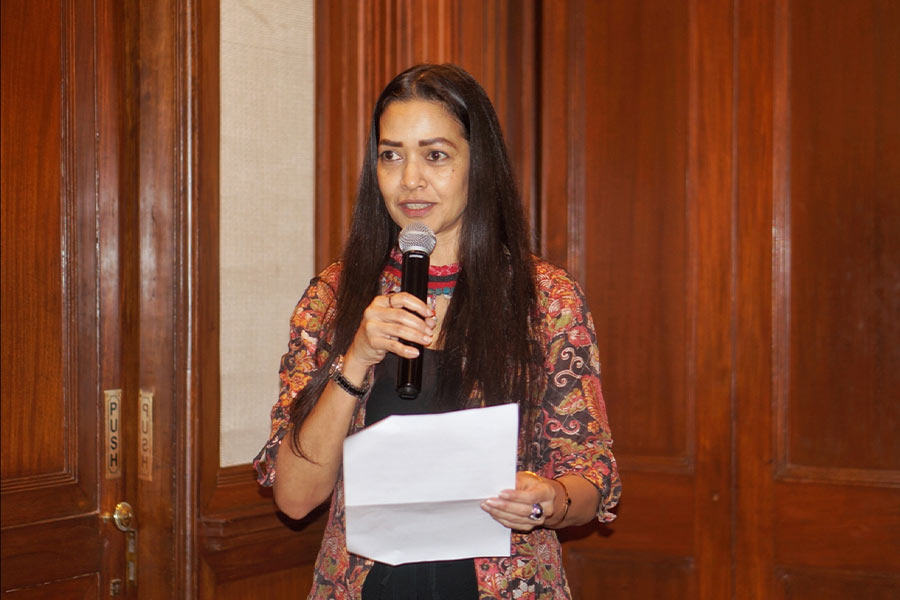
Esha Dutta

“Today’s session was especially interesting because not only because Sagarika is a journalist but also because she has forayed into politics. It’s intriguing to get a perspective from a journalist because they have seen all sides of the spectrum. I particularly enjoyed her take on today’s politics. I look forward to reading her book.”
— Esha Dutta, honorary convener of Northeast Affairs, Prabha Khaitan Foundation
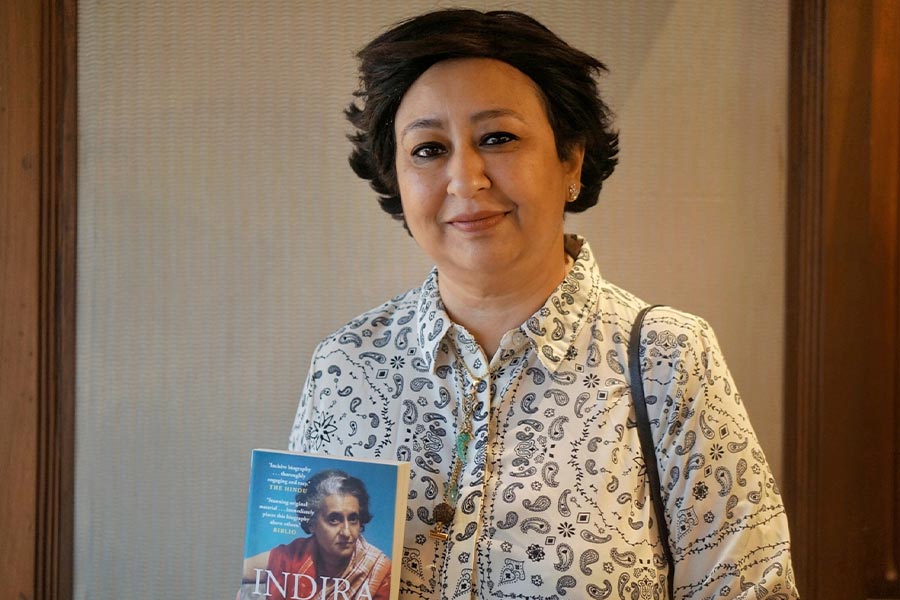
Meeta Sethia

“Both Mohanka and Ghose were amazing. It was surprising that they met for the first time because the conversation flowed very well.”
— Meeta Sethia, psychologist
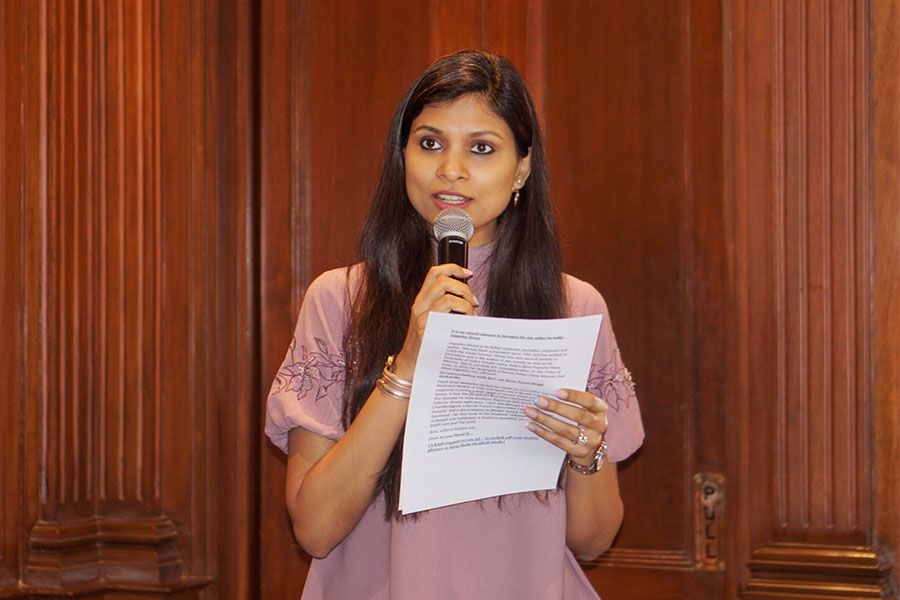
Nilisha Agarwal

“It was a captivating session. Sagarika threw light on Indian politics and how it has evolved. She also spoke about her career and how more women are becoming journalists and how there’s more equality to be seen soon, if not already there, which I found interesting.”
— Nilisha Agarwal, Ehsaas Woman of Kolkata
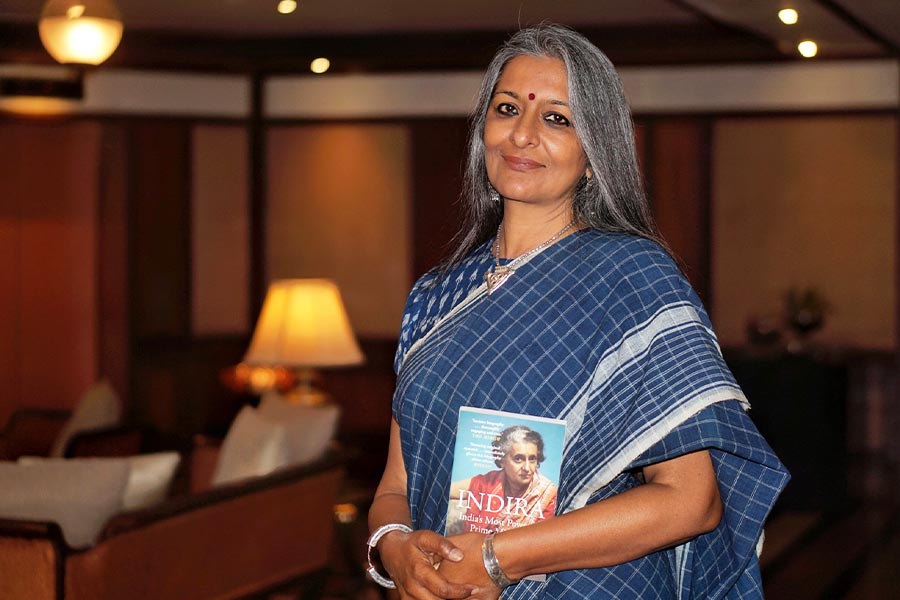
Nandita Palchoudhuri

“I have been a fan of Sagarika’s, her father and her family for a long time. Today’s conversation bolstered that. I’m really happy that someone with a mind of her own and the ability to oppose is entering the Parliament. I really look forward to what she can contribute. It was a very encouraging and hopeful session.”
— Nandita Palchoudhuri, consultant-curator of Indian folk art
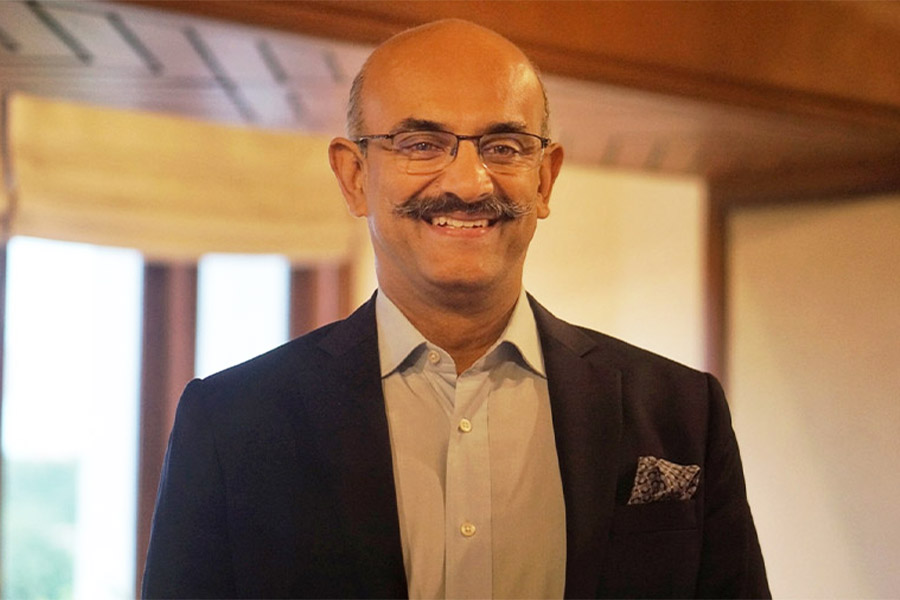
K. Mohanchandran TT Archives

